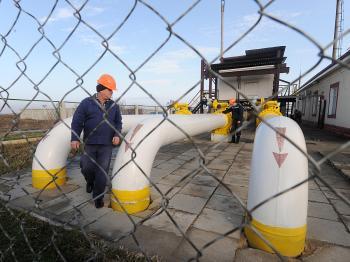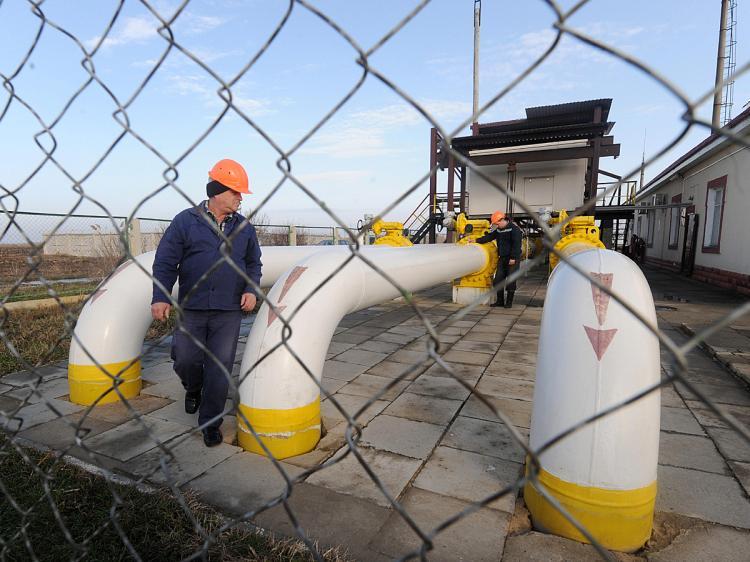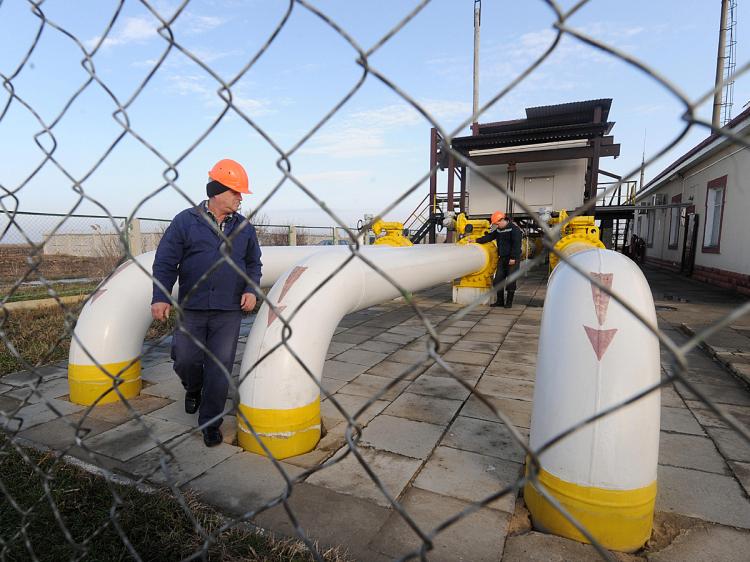“Gas transit, the Ukrainian side assured us, will be restored soon,” said Vladimir Putin to the Russian state TV channel Vesti-24.
The conditions for the new deal allow Ukraine to get a 20 percent discount compared to the standard gas prices other European nations pay for Russian natural gas. In return, Ukraine will not charge higher gas transit fees, which would remain the same as last year. These conditions should last for the rest of the year. In 2010, Ukraine would start paying standard gas prices without discount and Russia would also pay higher transit rates.
“We also agreed that starting Jan. 1, 2010 we will fully move to gas prices and transit tariffs in line with European levels without any reductions and discounts,” said Vladimir Putin.
The financial crisis has hit Ukraine hard with a forecasted 5 percent decrease in GDP. It would pose a great challenge to pay for such an increase in gas price. The upside for Ukraine, despite being forced to pay double what it paid last year, is that analysts predict that the gas prices will fall dramatically in the summer, following the decrease of oil prices.
The signing of the gas deal brought much relief to European Union nations. During the past 2 weeks all gas through Ukraine to the rest of Europe had been completely cut off. As a result, gas shortages in countries such as Bulgaria and Serbia forced many factories dependence upon large amounts of gas heat to halve their production.
Slovenia—despite strong criticism from the EU—decided to turn on its nuclear power plant, which had been shut down since joining the EU due to its unsafe construction that poses radiation risk for the region. It was a decision provoked by an inability to provide heat to keep industries functioning and to warm homes in the winter.
Despite that the deal, it remains still to be seen whether Timoshenko’s political rival, Ukrainian president Viktor Yushchenko, would respect the deal. In the past year, Timoshenko had already signed a gas deal with Putin in Moscow, but on her return to Kiev, Yushchenko had vetoed it.
”The Prime Minister (Timoshenko) has a full mandate at the talks. Otherwise, she would not be taking part in them,” said Yushchenko’s spokesman reassuring the validity of the contract.
Earlier last week on Saturday, Vladimir Putin attended a meeting with German Chancellor Angela Merkel. After listening to Putin’s accusations that Ukraine is stealing gas and didn’t want to pay normal prices, Merkel reminded him that a gas deal should be reached as soon as possible because the rest of Europe was suffering without heat. She asked Putin not to look beyond who was right or wrong, but instead to concentrate on finding ways to supply gas to European customers. The approach eventually worked as the two bickering nations reached a deal the very next day.






